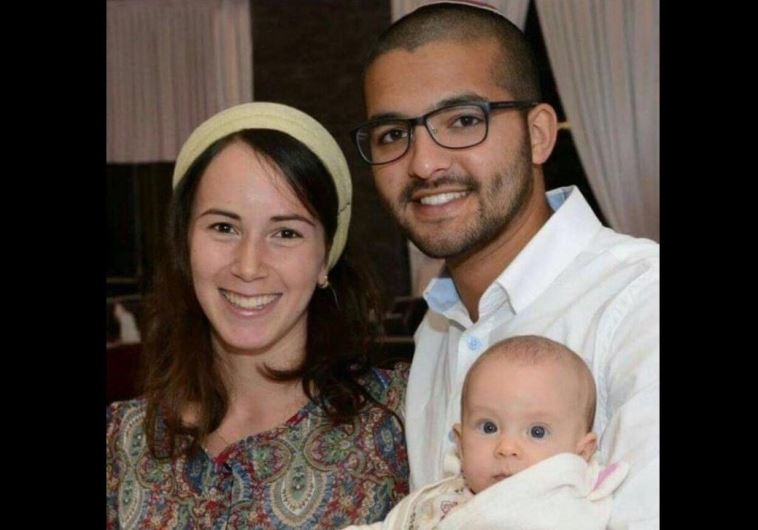Terror victim's wife spars with state over characterization of husband's death
Decision will impact what is written on Tuvia Yanai Weissman's gravestone's epitaph.
 IDF Sgt. Tuvia Yanai Weissman (R), his wife, and baby(photo credit: IDF SPOKESPERSON'S UNIT)Updated:
IDF Sgt. Tuvia Yanai Weissman (R), his wife, and baby(photo credit: IDF SPOKESPERSON'S UNIT)Updated: